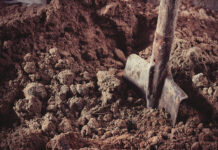
[miningmx] — THE chief executive of the Chamber of Mines has asked the ANC to
consider calling an economic Codesa in the wake of the Marikana massacre.
Bheki Sibiya told City Press such a gathering must include all 23 sectors of
the economy “to conceive and conclude a plan to effectively deal with the evil
triplets of unemployment, poverty and inequality’.
Asked whether South African mine workers are underpaid, Sibiya said: “The
Chamber of Mines is confident that the wages and other terms and conditions of
employment that the chamber’s members pay their employees compare very
favourably to that of other labour-intensive industries such as civil engineering,
construction, metal and engineering, retail and agriculture.’
What happened at Marikana is tragic and there are “clearly issues that need to be
addressed and addressed urgently’, Sibiya said. “We believe that Lonmin is making
this a priority.’
There was a time when mine workers were paid poorly in South Africa, Sibiya says,
but over the past two decades there has been a “consistent and significant
improvement in the wages and other terms and conditions of employment of mine
workers’.
This has happened through wage negotiations with the trade unions in the mining
industry. “Today, workers earn wages that compare extremely favourably to those of
other labour-intensive industries.
Mine workers’ basic wages are, as a rule, more than the basic wages paid by other
labour-intensive industries.
“In addition, mine workers also earn production bonuses, which could easily amount
to an additional 50% of their basic pay.
They are also paid either a living-out allowance or housing allowance if they choose
not to live in mine accommodation. These allowances range from R1,520 to R4,000
per month. Sibiya says mine workers are also paid a so-called holiday leave
allowance, which in essence amounts to a thirteenth cheque when they go on leave.
“Chamber companies also contribute up to 15% of basic pay towards retirement
funds, and employees either receive free healthcare or the companies contribute
between R700 and R800 per month towards medical-aid funds.’
Asked if the industry is afraid of new unions such as the Association of Mineworkers
and Construction Union (Amcu), Sibiya said: “The mining industry is an industry
with proper industrial relations structures in place, be it at company level or at
central level under the Chamber of Mines.
If a trade union approaches a mining company and it can prove that it meets the
recognition criteria for organisational rights or even for bargaining rights, then the
company will respect the fact that the union has met the set criteria and will engage
with it, provided that it is understood by all that there are labour laws in place that
everyone needs to respect and adhere to.’
An industry source told City Press/i> that Amcu appeals to “less educated mining
workers’ who feel the National Union of Mineworkers (NUM) was no longer fighting
their battles in the workplace.
He said Amcu organised quietly behind the NUM’s back and only presented
employers with membership affiliation once it had recruited a significant number of
workers.
This often caught the NUM unawares, and employers were forced to change
bargaining arrangements at the mines in favour of the NUM to ensure that it
retained its numerical majority.
Lesiba Seshoka, the NUM spokesperson, confirmed that the NUM and Amcu would
appear before the Council for Conciliation, Mediation and Arbitration this week,
where membership at Impala Platinum will be verified. Seshoka alleged that some of
the NUM’s members had been intimidated into joining Amcu.
– City Press










